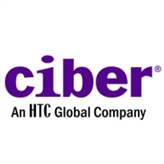Ciber Global, LLC
Southfield, MISecurity Engineer
Job Description:
The security engineer is responsible for implementing, maintaining, monitoring and managing secure solutions. The engineer delivers these solutions in accordance with the organization’s architectural designs, best practices, and regulatory or compliance requirements. As risks change, the security engineer is responsible for recommending modifications and enhancements to ensure the organization is evolving with the threat landscape.
The security engineer is expected to contribute to the corporate security strategy with security leadership and other senior security staffers and technologists. Recipients of the engineer’s implementations and management include IT infrastructure, application development, security operations, security audit and end users. With an emphasis on securing systems, applications, third-party connections, service providers and ancillary systems, the security engineer is responsible for securing business-to-business initiatives, third-party relationships, outsourced solutions and vendors. Considered a highly knowledgeable individual, the security engineer is expected to implement, monitor and manage secure solutions that address modern day issues.
Essential Duties and Responsibilities:
- Handle day-to-day implementation, monitoring and operational support of hardware, software, customer applications, managed solutions and service provider relationships.
- Actively participate and lead security team meetings that facilitate secure design.
- Engage in information security projects that evaluate existing security infrastructure and propose changes as defined by security leadership and architects. Additionally, deliver projects on time, within budget and in accordance with service level agreements (SLAs).
- Assist with incident response and system stability issues as they occur. This may include involvement outside of regular work hours, and responsiveness is expected.
- Implement solutions observing compliance – Health Information Portability and Accountability Act (HIPAA), Gramm-Leach-Bliley Act (GLBA), Payment Card Industry (PCI), Sarbanes-Oxley Act (SOX), etc. – and privacy laws.
- Work in tandem with architects, the security operations center (SOC), incident responders (in cases of anomalous activity and host compromise), and technology infrastructure and development team members.
- Respond to and handle service and escalation tickets within SLA expectations.
- Develop security test plans from architectural design. Identify deficiencies and make enhancements to ensure production is not impacted.
- Participate regularly in change project and change management meetings.
- Research, validate and deploy solutions meeting security and business needs.
- Follow security engineering fundamentals and processes as outlined in NIST 800-160
- Influence the planning and execution of incident response and postmortem exercises, with a focus on creating measurable benchmarks to show progress (or deficiencies requiring additional attention).
- Focus on driving security efficiencies, enabling security team members to work on more advanced tasks.
- Conduct performance testing to stress the limitations of security solutions while at the same time ensuring business innovation and day-to-day processes are not negatively impacted.
- Perform other duties as assigned.
Skills and Experience:
- Preferably at least 5+ years’ experience in cybersecurity, including compliance and risk management with a system and network security engineering background.
- Highly technical and analytical expertise, with a proven deep background (preferred 5+ years’ IT experience in addition to cybersecurity) in technology design, implementation and delivery.
- Experience in cloud computing technologies, including software-, infrastructure and platform-as-a-service, as well as public, private, and hybrid environments.
- Extensive knowledge of traditional security controls and technologies, such as Security Information and Event Management (SIEM) systems, intrusion detection/prevention systems (IDS/IPS), public key infrastructure (PKI), identity and access management (IDAM) systems, antivirus and firewalls, in addition to newer offerings such as endpoint detection and response (EDR), threat intelligence platforms, security automation and orchestration, deception technologies and application controls.
- Skilled in meeting vulnerability and penetration testing requirements.
- Excellence in communicating business risk from cybersecurity issues.
- Experience managing SIEM systems, threat intelligence platforms, security automation and orchestration solutions, IDS/IPS, file integrity monitoring (FIM), data loss prevention (DLP) and other network and system monitoring tools.
- Track record of acting with integrity, taking pride in work, seeking to excel, being curious and adaptable, and communicating effectively.
Additional Qualifications:
- Experience with Amazon Web Services (AWS) or Microsoft Azure.
- Proficient with scripting in Python, JavaScript, PowerShell, PHP or Ruby.
- DevOps background with experience in compliance obligations.
- Experience with one or more of the following: ISO 27001, NIST, PCI Data Security Standard (PCI DSS), HIPAA, Health Information Technology for Economic and Clinical Health (HITECH) Act, SOX, the General Data Protection Regulation (GDPR), Center for Internet Security (CIS) standards or Service Organization Controls (SOC) 2.
- Working knowledge of Windows, Linux and Unix.
- Familiarity with state privacy laws.
- Ability to think strategically and tactically, with effective decision-making skills.
- Highly trustworthy; leads by example.
Professional IT Certifications (Preferred):
- Certified Information Systems Security Professional (CISSP)
- Certified Information Security Manager (CISM)
- Information Systems Security Architecture Professional (ISSAP)
- Information Security Engineering Professional (ISSEP)
- McAfee Product Specialist Certification
